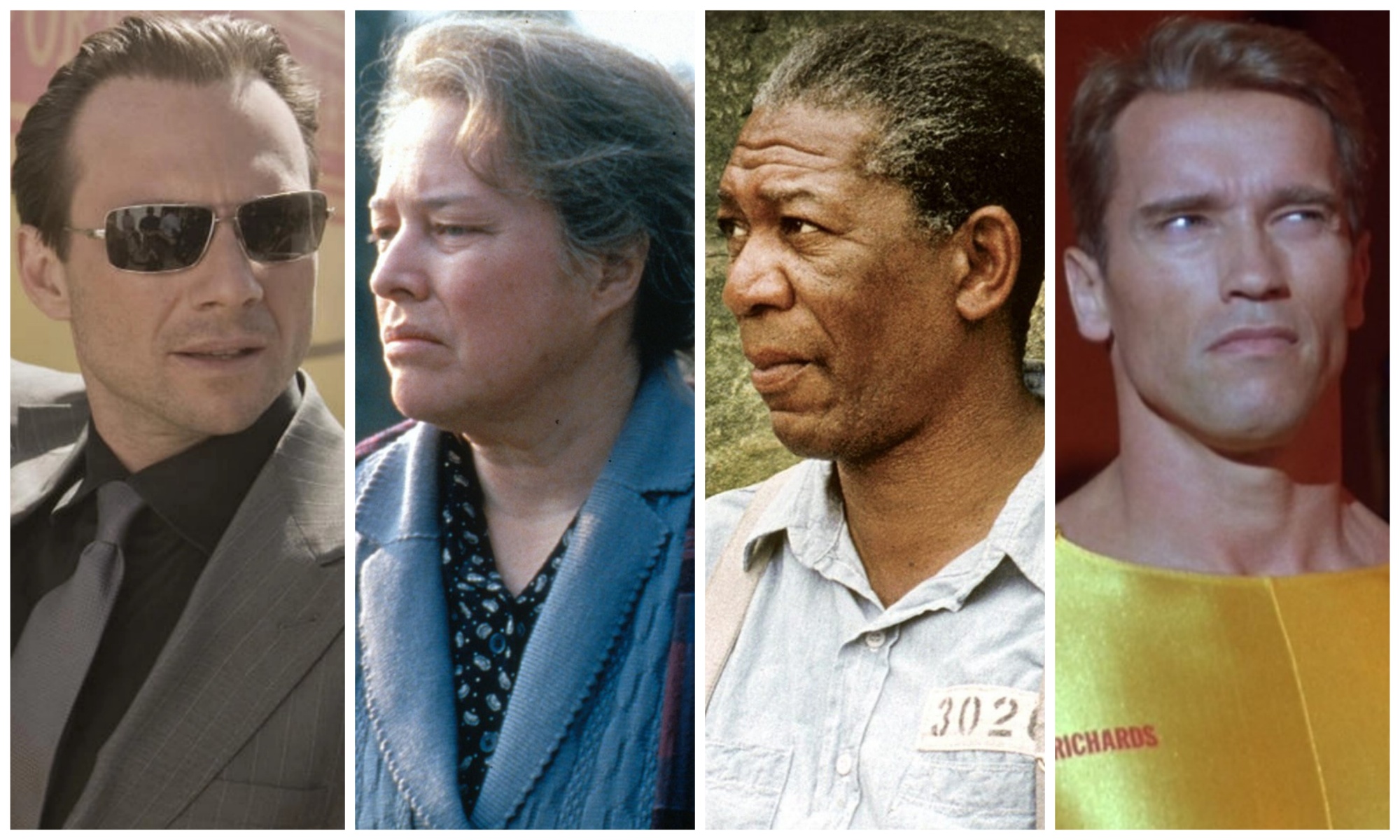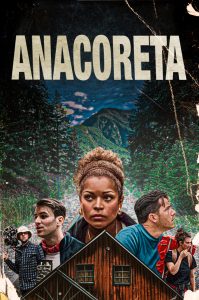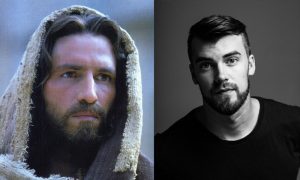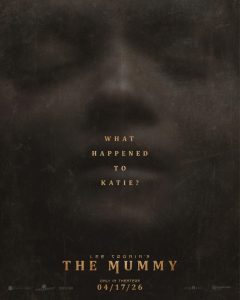
Stephen King is inarguably one of the most adapted authors in the world (we didn’t nail down the exact count, but he’s up there with Shakespeare, Dickens, Poe, and others). The reigning overlord of the horror genre has seen his work translated to film and TV (miniseries, limited series, TV movies, etc.) almost continually since his first novel, Carrie, was adapted in 1976. While he’s had his ups and downs in terms of success in those venues, it’s almost a certainty that the King adaptations will continue as the author himself keeps working well into his sixth decade as a published writer.
Naturally, most of the adaptations of King’s work focus on his horror or horror-adjacent output: just about everything from 1,000-page behemoths like the post-apocalyptic The Stand to 10-page short stories like the single-setting monster tale “The Boogeyman” have found their way to the screen. But while filmmakers and creators gravitate toward the King material that they think will scare audiences – after all, that’s his brand – some of the master’s more atypical yarns have gotten out there as well.
King has never denied being a horror writer, but he’s written other types of stories too, and ironically, some of his least scary tales have become the basis for some of the author’s most successful adaptations. There aren’t many of these movies (and yes, it’s pretty much exclusively been movies), and not all of them are knockouts either, but there is a small list of King-based films that – even if they are dark in nature or have a supernatural element – don’t really set out to scare you.
Stand by Me (1986)
Stephen King’s classic novella “The Body” was first published in Different Seasons, a now-legendary collection of stories meant to show a (mostly) non-supernatural horror side to King’s writing. Three of the four tales in the book went on to become movies, with “The Body” the first to arrive on the screen as Rob Reiner’s Stand by Me. The story is a poignant coming-of-age tale about four young boys who hike along a railroad track on a mission to see the dead body of another boy killed by a passing train.
The story is a meditation on youth, growing up, and memory, reminiscent in some ways of Ray Bradbury’s work, and Reiner captures the tone of King’s novella in what is now considered one of the best adaptations of the author’s work (the cast includes a young River Phoenix, Wil Wheaton, Jerry O’Connell, and Corey Feldman). While there are macabre moments – including the boys’ passage through a leech-filled pond and their discovery of the body itself – Stand by Me is not frightening at all, but remains a moving tribute to the fleeting innocence of childhood.
The Running Man (1987)
The Running Man was one of four early novels that King wrote under the pseudonym Richard Bachman, and it’s a short, terribly grim tale of a man named Ben Richards who participates in a grisly game show on a state-run TV network in a future dystopian America. In addition to being one of King’s earliest published novels, The Running Man is also one of his first infrequent forays into pure speculative fiction, and while it’s violent and offers a depressing view of our future, it’s not much like his horror output.
The 1987 film adaptation (directed by Paul Michael Glaser, better known as Starsky on the ‘70s TV cop show Starsky & Hutch) kept the basic premise of King’s story but heavily altered much of it, turning it into more of a satire, while also ramping up the action content and losing King’s bleak climax. The film also replaced the skinny, physically depleted Richards of the novel with a heroic Arnold Schwarzenegger, then in the midst of his ‘80s action phase (had original star Christopher Reeve stuck around, the movie would have hewed closer to King’s darker narrative). The Running Man is action-packed and entertaining, but a far cry from the book – which is supposedly being remade by Edgar Wright.
The Shawshank Redemption (1994)
The second Different Seasons novella to get a feature film adaptation (the controversial “Apt Pupil” was the third and, to date, last), “Rita Hayworth and Shawshank Redemption” was faithfully transferred to the screen in 1994 by future The Walking Dead series creator Frank Darabont. Despite positive reviews, top stars like Morgan Freeman and Tim Robbins, and a deliberate attempt to downplay the King connection – plus an eventual seven Oscar nominations, including Best Picture – The Shawshank Redemption was a box office bust upon release, not even earning back its $25 million budget.
But a second life on home video and cable TV began to turn the tide, and The Shawshank Redemption is now considered not just one of the best King adaptations ever, but a beloved film classic in its own right. And that’s how it should be: the movie is a beautifully acted, moving, and superbly told tale of both one man’s (Robbins) refusal to give up on himself as he spends a potential life sentence in prison, as well as the friendship he forms behind bars with another lifer (Freeman) who finds his own hope restored by their bond. It’s dark and harrowing in spots, with murder, savage violence, and rape all factoring into the story, but it’s not scary at all – and it remains a crowning achievement in the King filmography.
Dolores Claiborne (1995)
Based on one of King’s most experimental novels – which formed a loose “women’s stories” triptych with the books Gerald’s Game and Rose Madder (which has yet to be adapted) – Dolores Claiborne stars Kathy Bates in the title role as an older woman and resident of a small island off the coast of Maine who works as a housekeeper for a wealthy widow. When Dolores is suspected of murdering the widow for her fortune, the suspicious death of Dolores’ own husband years earlier is dredged up, forcing Dolores to reveal everything about her past, her marriage, and why she is estranged from her daughter.
Director Taylor Hackford’s film naturally jettisons the format of the novel – which is written as one long, uninterrupted monologue by Dolores – and beefs up the role of her daughter (Jennifer Jason Leigh) and the detective (Christopher Plummer) on the case, while also severing the tenuous connection to Gerald’s Game. Decidedly non-supernatural, Dolores Claiborne was somewhat overlooked at the time of its release but has proven to be a sturdy, compelling character study and psychological drama, anchored by fantastic performances from Bates and Leigh.
The Green Mile (1999)
Frank Darabont once joked that he occupied the smallest cinematic subgenre ever – period Stephen King stories set in prisons – but let’s face it, he knocked it out of the park both times. Unlike Darabont’s The Shawshank Redemption, however, The Green Mile was a box office hit out of the box, earning $286 million worldwide on its way to four Oscar nominations, including Best Picture. While not quite as beloved as its predecessor, this three-hour epic has largely held up over the years as well, thanks once again to Darabont’s faithful rendering and an extraordinary cast.
The Green Mile may pile on the melodrama a bit thick in its second half, and the story’s central “magical Negro” trope has not aged well, but the story is still undeniably compelling and the cast, led by Tom Hanks, David Morse, James Cromwell, and Michael Clarke Duncan as John Coffey — the Black man falsely accused of murdering two little girls who is blessed with a mystical power – makes it all work. The Green Mile is also one of just two movies on this list that features a supernatural component, but it’s not a horror tale in any sense – unless you count just how brutal our capital punishment system was and is.
Hearts in Atlantis (2001)
Pretty much forgotten today, this movie is confusingly named after a 1999 collection by King but is largely based on a story within that collection called “Low Men in Yellow Coats.” To make matters even more perplexing, the novella itself is heavily connected to King’s The Dark Tower saga, although all references are removed from the movie. The name of the movie also makes no sense, given that it was the title of a different novella in the collection that has nothing to do with the movie.
In other words, this is an attempt to make a movie out of an existing King book while all but discarding the book’s overall structure, themes, and meaning. While the film (directed by Scott Hicks and adapted by legendary screenwriter William Goldman) is boosted by the reliable presence of Anthony Hopkins as the enigmatic, psychically gifted Ted Brautigan and features a striking big screen debut for the late Anton Yelchin, it’s otherwise a bland thriller that makes no impact without its literary context.
Dolan’s Cadillac (2009)
Based on a 1985 novella (nowadays found in King’s 1993 collection, Nightmares and Dreamscapes), Dolan’s Cadillac was originally released direct to video in 2009 and seems available only today on YouTube and Google Play as a rental or purchase. Directed by Jeff Beesley (a Canadian filmmaker who has stuck largely to Christmas TV movies in the years since), the film stars Wes Bentley as Tom Robinson, a teacher who runs afoul of a mobster named Jimmy Dolan (Christian Slater in a role originally meant for Sylvester Stallone). When Dolan murders Robinson’s wife, the latter plans an elaborate revenge that ends with Dolan being buried alive in the title vehicle.
Reviews of the film on IMDb and elsewhere cite Bentley and Slater for providing solid performances, and the film itself for a few passages of decent suspense, but stretching King’s novella to film length seems to have otherwise turned it into a routine revenge thriller with the protagonist deploying an unusual method for extracting his vengeance.
A Good Marriage (2014)
Another King-based feature film that more or less vanished upon release (it’s available now on Peacock, Tubi, and other services), A Good Marriage is based on a King novella from the 2010 collection Full Dark, No Stars. It’s a dark story indeed, in which a woman discovers that her husband of 27 years, with whom she has raised a family and shared a generally happy relationship, is a vicious serial killer. King says in the afterword to the collection that the story was loosely inspired by the real-life “BTK Killer,” Dennis Rader, whose own wife allegedly did not know about his crimes despite being married for more than 30 years.
Joan Allen and Anthony LaPaglia star as the couple, Darcy and Bob Anderson, in the film, which also features Avatar and Don’t Breathe villain Stephen Lang as a cop who has been investigating Bob’s killings for years. Directed by Peter Askin, with a screenplay by King himself, A Good Marriage is very faithful to the original text but proceeds in such plodding, pedestrian fashion that the film fails to come alive on screen or even evoke any response to its macabre premise. Scary it is not – and perhaps not on purpose.
The post The Stephen King Movies That Aren’t Trying to Scare You appeared first on Den of Geek.











